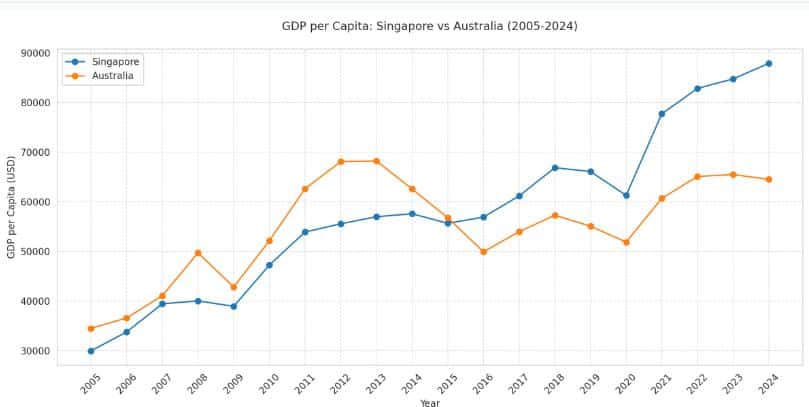Many of Australia’s federal and state politicians received a pay increase this year.
The federal pollies received a 3.5% rise from the start of the current financial year. That means $230,000 for the backbenchers, $430,000 for the opposition and a tick over $600,000 for the PM.
The move was lamented in much of the media. The West Australian slammed their pollies awarding themselves a $170,000 per year, because it’s now about 60% more than the average West Australian salary. The premier’s pay package nudges $400,000.
But is this the correct gauge for judging whether politicians are overpaid?
A novel system for determining politician pay, and one with very different results, is in place in Singapore.
The ministers in the Singaporean government have their pay indexed to the private sector. The median salary for the top 1,000 highest income earners in the private sector is calculated. From there, a 40% discount is applied “to reflect the ethos of the public service”. This becomes the benchmark salary for a junior minister of government.
“Looking at the responsibilities of the jobs that these 1,000 hold, this is a reasonable level that reflects the quality and abilities of people that Singapore seeks to bring in as ministers for continued good government,” the pay review panel said.
This system leaves junior ministers with a salary of SGD $1.1 million (AUD $1.3m). The prime minister’s salary is double that of a junior minister.
Singapore’s fourth prime minister, Lawrence Wong, was sworn into office in May 2024. His pay hits the SGD $2.2 million per year mark, or around AUD $2.5m.
A municipality mayor in Singapore makes SGD $660,000, or $AUD 779,000.

Singapore seeks public servants who wish to serve the public, an official of the pay review panel said. However, “this is not in itself sufficient to run a country well”.
Perhaps this helps explain why Singapore has shot past Australia economically. Its GDP per capita is expected to be approximately USD $90,000 in 2024, compared to USD $65,000 for Australia.
Top talent expects to be recognised accordingly. As Lee Kuan Yew said, “If you pay peanuts, you get monkeys”.
Sign Up To Our Free Newsletter